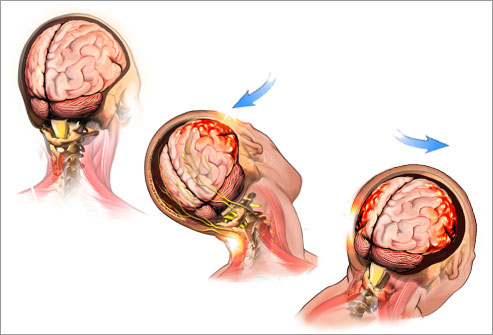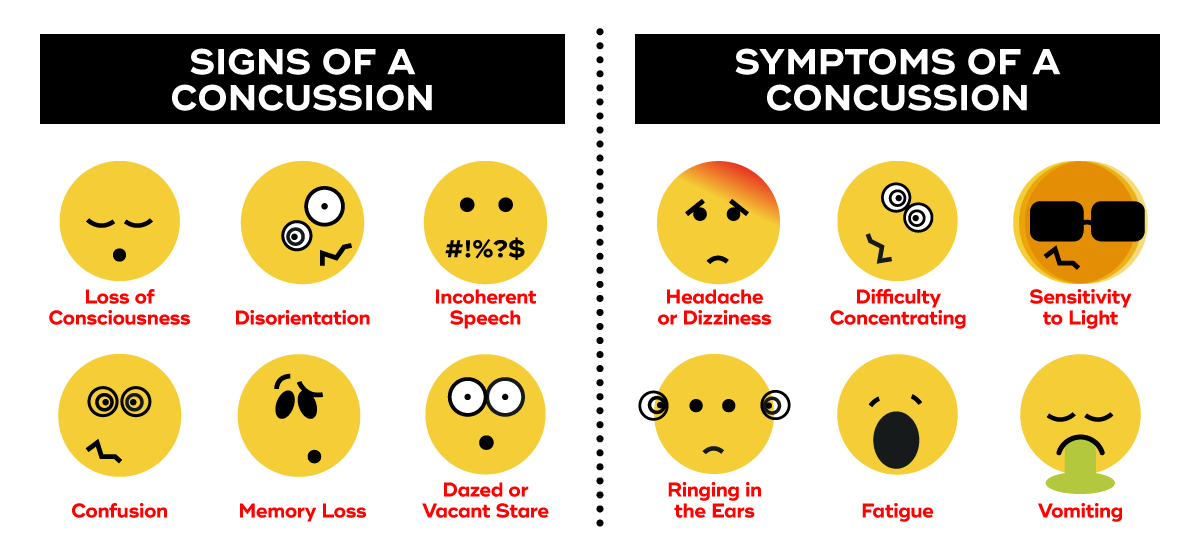Posts Tagged ‘Concussions’
Concussions are Serious. By Our September Student Pharmacist, MiKayla Matheny.

Concussion in Introduction to Sports Medicine, wikidot.com
About one million children go to the emergency room or are seen by a doctor for a concussion in the United States each year.
A concussion, which doctors consider a mild form of traumatic brain injury, usually results from a bump or jolt to the head. When an impact causes the brain to bounce or twist inside the skull, it can potentially cause damage to brain cells. This type of injury is common with falls and car accidents, but is also increasingly a concern with sports injuries. Children and teens are at higher risk of concussions and, while concussions are dangerous at any age, they can have more serious effects on young, developing brains. It is important that anyone with signs or symptoms of a concussion gets medical help as soon as possible.
Symptoms of a concussion can begin right after the injury, but sometimes may not appear or be noticed until several hours to days later. The majority of concussions do not involve being ‘knocked out’ or losing consciousness. Even a seemingly mild or harmless bump to the head can result in a concussion. In fact, many concussions occur without immediately noticeable signs or symptoms and therefore go undiagnosed. An undiagnosed concussion is particularly dangerous in young athletes because it increases the risk of a subsequent concussion occurring on the field, extends the time required for recovery, and increases the risk of lasting brain damage. Parents, teachers, and coaches should always know to watch for the visible signs of a concussion and should encourage their kids to speak up about any symptoms. Young athletes should never return to play on the same day an injury occurs, even if they initially feel able.
After an injury, medical attention is necessary if the person experiences any of the following symptoms of a concussion:
- Headache or ‘pressure’ in the head
- Nausea or vomiting
- Dizziness
- Blurry or double vision
- Sensitivity to light or sound
- Numbness or tingling
Sometimes children cannot easily describe these symptoms or may simply say they do not feel ‘right’. This should be taken seriously even if complaints are not specific. Someone with a concussion may have difficulty thinking clearly, concentrating on or remembering things, or feel sluggish, hazy or foggy.
Parents, teachers, and coaches should seek medical help for their kids if they notice any of the following:
- Dazed or stunned appearance
- Confusion about events
- Answering questions slowly
- Behavior or personality changes
- Loss of consciousness (even briefly)
- Inability to recall events before or after the hit, bump, or fall
Even with proper medical attention, it can be difficult to recover from a concussion. For the first several days after a concussion, rest is the best course of action. Physical and mental activity should be restricted in order to give the brain time to heal. Parents, teachers, and coaches may need to help make sure their kids are excused from school and/or practice initially. Concussion symptoms usually resolve within a month or two, but may persist longer in some cases. Kids should resume normal activities gradually to avoid aggravating concussion symptoms and their activity level should increase only if no symptoms occur.
Concussions are quite common and can be easily overlooked. Concussions can be serious and have long-term consequences. It is important that parents, teachers, coaches and their children, students, and players all be aware of what to watch for and how to react if a head injury occurs.
For more information check out the CDC “Heads Up on Concussion” Campaign: https://www.cdc.gov/HEADSUP/

Concussion, my-definitions.com


